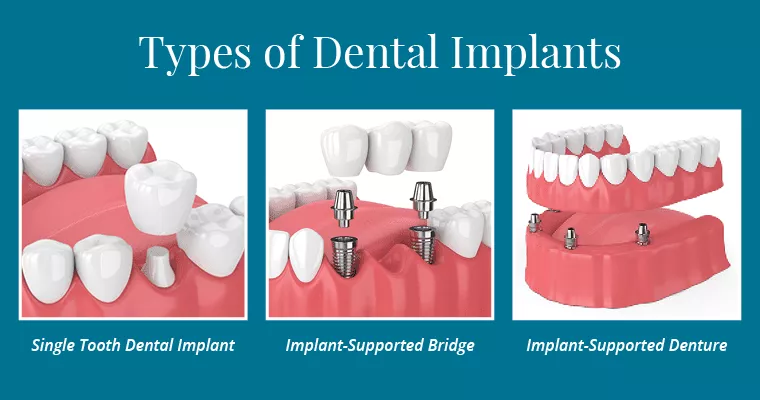Implants & Prosthetics

A missing tooth is more than just a gap in a smile; it can impact your ability to chew, affect your speech, and lead to the shifting of surrounding teeth. We provide state-of-the-art dental implants and prosthetic solutions that look, feel, and function exactly like your natural teeth.
What are Dental Implants?
A dental implant is a sophisticated surgical fixture—essentially a medical-grade titanium post—that acts as a replacement for a missing tooth root. Once placed into the jawbone, it undergoes a process called “osseointegration,” where it fuses with the bone to create a rock-solid foundation for a custom-made ceramic crown.
Why Choose Implants Over Traditional Options?
Dental implants are considered the “gold standard” for tooth replacement because of their unique benefits:
-
Protect Healthy Teeth: Unlike traditional bridges, implants do not require the grinding down of adjacent healthy teeth for support.
-
Bone Preservation: Implants stimulate the jawbone, preventing the bone loss that typically occurs when a tooth is missing.
-
Superior Stability: Implants eliminate the need for removable dentures, providing a stable, permanent solution that won’t slip or click.
-
Versatility: They can be used to replace a single tooth or serve as anchors for bridges and full-mouth prostheses.
The Modern “Keyhole” Surgical Process
Thanks to advanced technology, dental implant surgery is now a minimally invasive, virtually painless “keyhole” procedure.
-
Same-Day Results: If you have high-quality bone and healthy gums, we can often perform the procedure on the same day. If additional healing time is needed, a temporary tooth is inserted so you never have to leave our clinic with a gap.
-
3D Precision: We use 3D jawbone scans to plan the exact placement of the implant, ensuring maximum safety and success even for patients who have previously lost bone density due to long-term denture use.
-
Comfort First: Using local anesthesia, discomfort is kept to an absolute minimum. Most patients find that any post-operative tenderness is easily managed with standard painkillers for just a few days.
Is a Dental Implant Right for You?
One of the best things about modern implants is that they are age-inclusive. Whether you are replacing a tooth lost to injury or age, implants are a viable option.
-
Medical Considerations: Patients with controlled Type II diabetes or those requiring gum stabilization can successfully undergo implant surgery.
-
Success Factors: To ensure long-term success, we work with you to manage factors like gum health and immune system support.
Long-Term Care for Lasting Results
Just like natural teeth, implants require excellent oral hygiene. With regular brushing, flossing, and professional check-ups every six months, your dental implant can last a lifetime.
